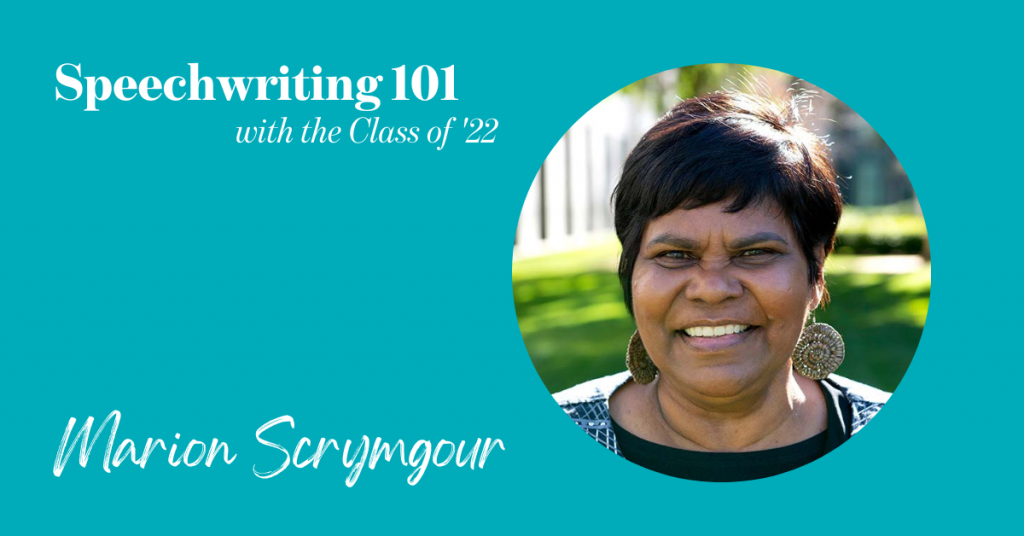A new member of the House of Representatives that many of us in the Northern Territory know well is Marion Scrymgour. While she’s a member of the Class of ’22, she’s no stranger to politics, representing the Arafura electorate in the Northern Territory Legislative Assembly for 11 years and rising to the role of Deputy Chief Minister.
Marion used her speech to talk about the incredible challenges of her electorate of Lingiari, 1.3 million square kilometres of desert and stone country – almost the whole of the Northern Territory plus the Cocos, Keeling and Christmas Islands – and 5 times the size of the United Kingdom.
After Marion acknowledges the country she is on, she honours her family and her Tiwi homelands in language. This truly offers special insight into who Marion is and what’s important to her as a Tiwi woman.
To do this in your own speeches:
- If you’ve got a cultural practice or custom to add to your speech, do it! It might be something as simple as wearing cultural dress or paying your respects to your ancestors. You can honour your roots, educate your audience and show who you are all at once.
- Explore the parallels and the differences between your cultural history and your life today. What has changed? What has stayed the same? This can teach your audience so much about who you are and what’s important to you.
- If it doesn’t feel appropriate or authentic, then don’t feel pressured. Your cultural background is entirely yours to honour in whatever way feels right to you.
Give it a try for yourself and let me know how you go.
If you need more help, download my free guide to writing ovation-worthy speeches here.








